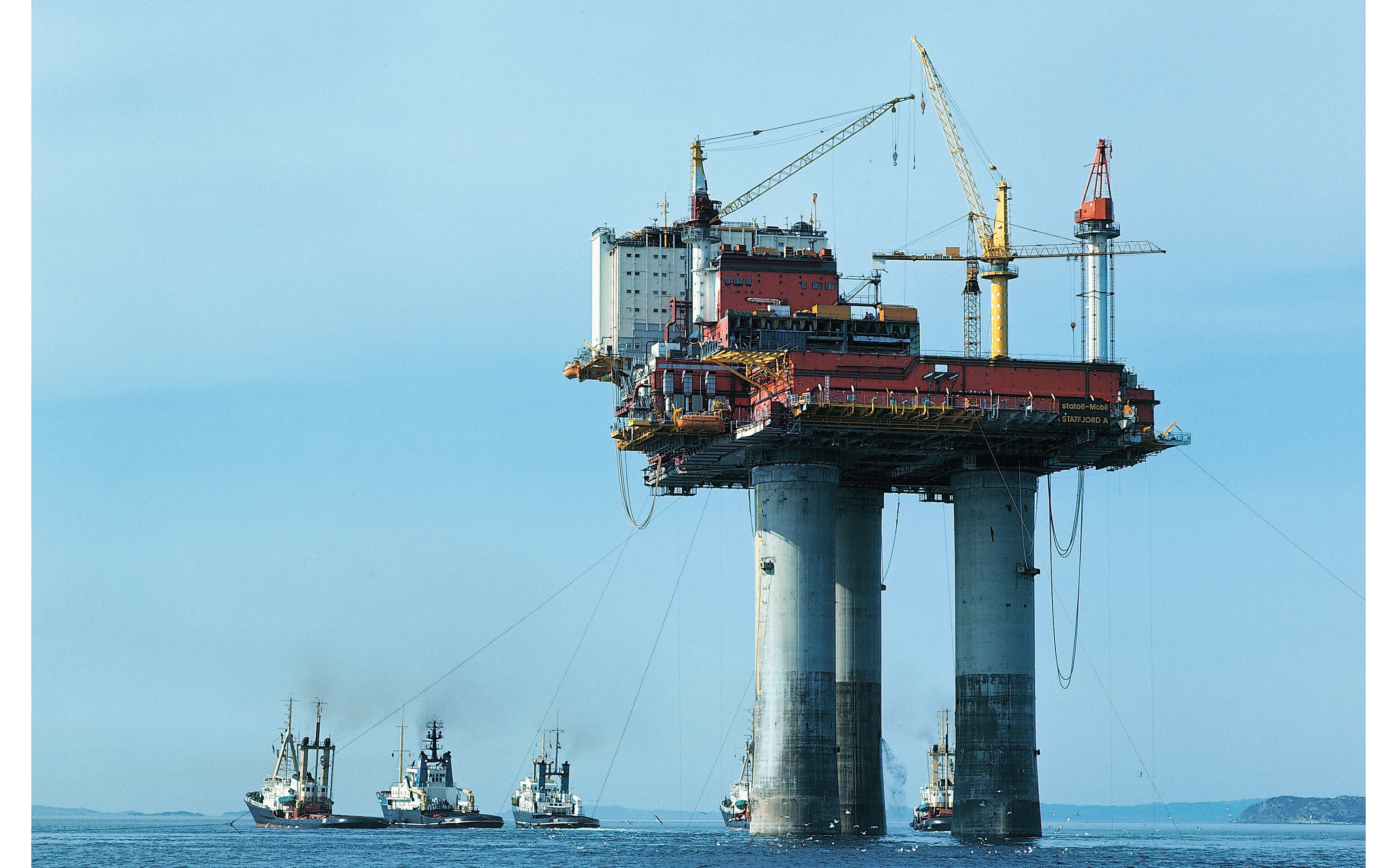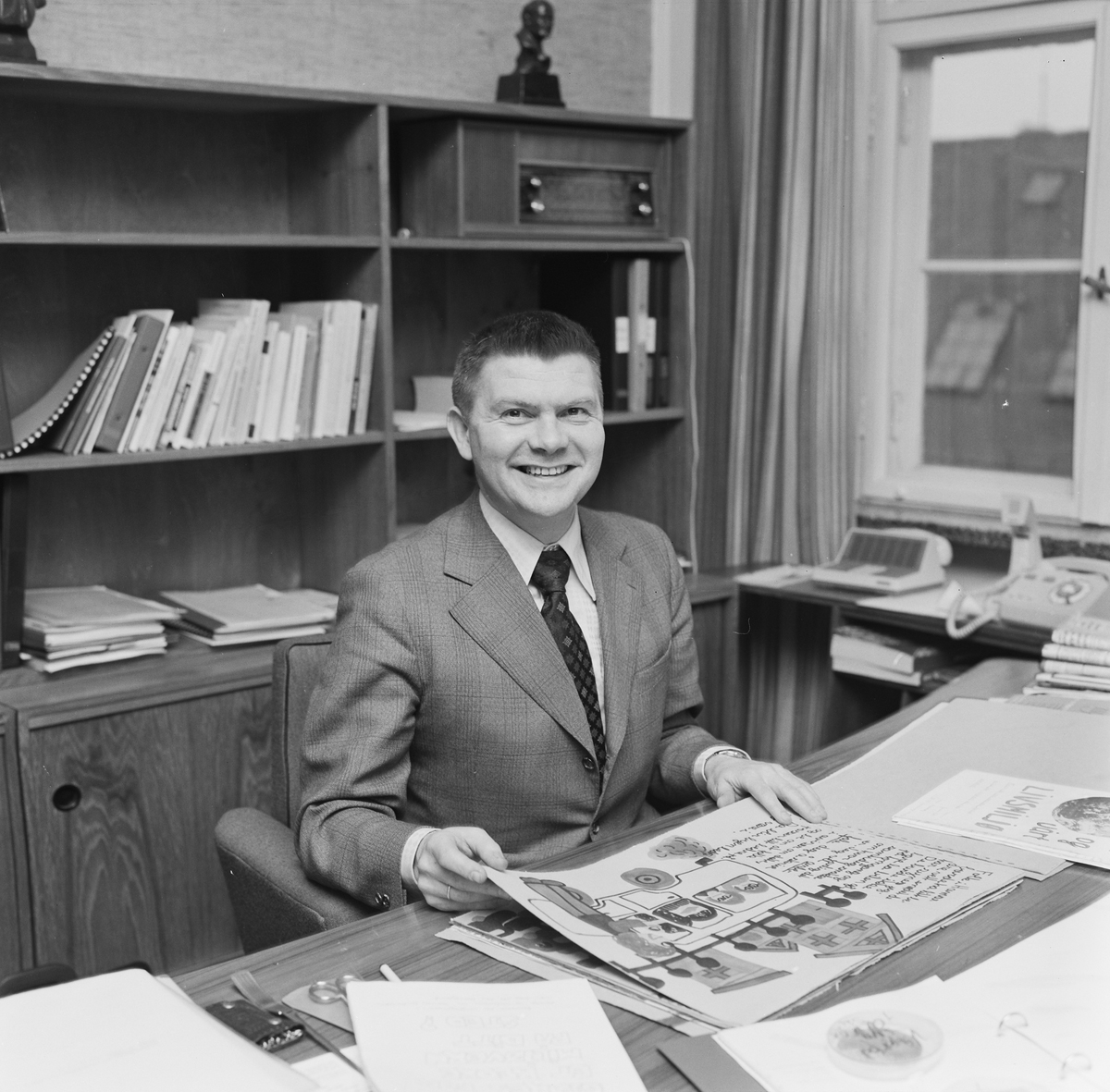Keeping parliament informed

Both Ekofisk and Frigg had been developed by foreign operators who provided limited insight into their dispositions. Statfjord thereby became the first Norwegian development where the public gained access to information, and which provided the basis for official follow-up.
This proved a steep learning curve for both government and oil companies. The foreign licensees in Statfjord initially protested about submitting detailed information on the field to the authorities, but had to accept the necessity of complying with a decision of the Storting (parliament).
Operator Mobil maintained on several occasions, perhaps with good grounds, that many of the details demanded by the Storting could be freely picked up and used by its competitors. This meant quite simply that commercial secrets became publicly available.
For its part, the government argued with equal justification that it needed this information because of the importance of being able to follow how project was going. That requirement reached a peak in 1976.
 statfjord a, forsidebilde, engelsk, Stortingets rolle
statfjord a, forsidebilde, engelsk, Stortingets rolleFirst, the tow-out of the Statfjord A platform was postponed for a year until May 1977. The Storting was considering the development plan for the field that spring. When it learnt of the delay to Statfjord A, the Storting’s standing committee on industry want to postpone its consideration. That was because they felt the time was too short to go through the White Paper and write a recommendation to the full Storting in view of all the new information being received during its work.
Reluctant to see a delay to the project, industry minister Bjartmar Gjerde applied pressure to get the issue considered before the Storting rose for its summer recess. After talks, the spring session was extended by one week to allow the recommendation to be submitted and considered. The field development plan was debated and approved by the Storting on 16 June 1976.
Meetings were held during August between the ministry and the industry committee on the one hand and Mobil/Statoil on the other at Stord (where construction was underway) and then in Stavanger. Information was provided about the new cost estimates and the consequences of the delays.
The Storting members became angry and said that, had they known of this in June, the Statfjord development plans would not have been approved. Gjerde and his bureaucrats were taken aback, and said they had not heard these details until then.
 historie, forsidebilde, Mobil Exploration Norway Inc etablert, Stortingets rolle
historie, forsidebilde, Mobil Exploration Norway Inc etablert, Stortingets rolleDuring the break between the Stavanger meeting and dinner, some of the senior Mobil executives went back to the office and fetched a copy of a letter the US company had sent to the ministry in early June 1976, which warned of the new cost estimates. This was a routine communication in connection with reporting for the national planning budget, but the figures stood there. Nobody in the ministry had reacted or sounded the alarm.
The problem for the ministry was that the cost estimates on which the Storting based its consideration of the development plan were very different from those in Mobil’s letter of 5 June. If the ministry had held back information of significance for the Statfjord development before it was considered by the Storting, the minister would be in deep trouble. The duty to inform parliament almost had the status of holy writ. This could form the basis for a vote of no confidence. The “letter affair” was thereby in swing.
The first thing Gjerde had to do was to establish whether the ministry had received the letter. A phone call was made from Stavanger to Karl-Edwin Manshaus, then a head of division at the ministry.
He was instructed to go to the office and find the post log for June. On arrival at the ministry, he found that he did not have the keys to the cupboard in which the logbook was kept. Gjerde ordered him to break into the cupboard. It was then quickly established that the ministry had received the letter from Mobil before the Storting’s Statfjord debate on 16 June.
In other words, it had failed to communicate the information it had received and which could have been passed to the Storting before the debate. The question was whether this was done intentionally. Since the Storting was not in session during August and September, the affair was largely debated in the media with a rising tide of criticism directed at Gjerde.
 stortingets rolle,
stortingets rolle,When the Storting reassembled in early October, the “letter affair” had become red-hot. Gjerde asked to make a statement on the affair as soon as the Storting constituted itself. He made an unreserved apology, and noted that he had not been aware of the letter when the Storting held its debate in June.
But this was not enough. The industry committee eventually delivered such a strong criticism of the minister that it could be interpreted as a vote of no confidence. The Labour Cabinet under prime minister Odvar Nordli was so incensed by this that it made the matter an issue of confidence in the whole government. It survived the subsequent vote with a majority of two.
